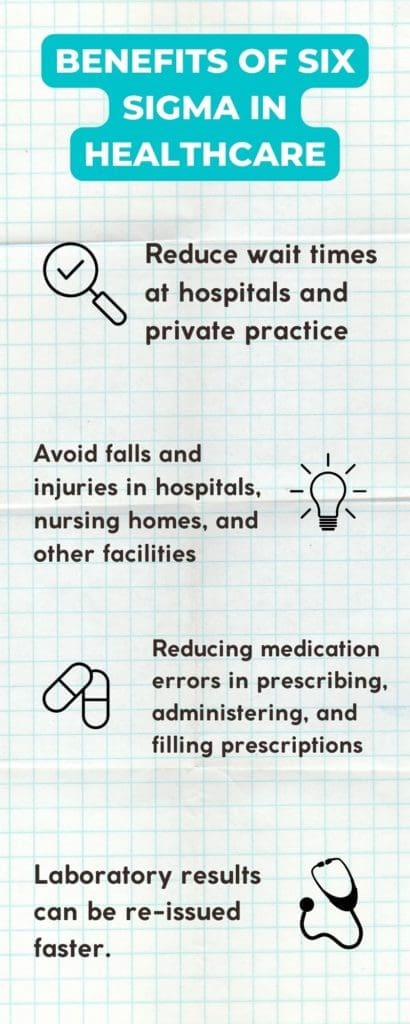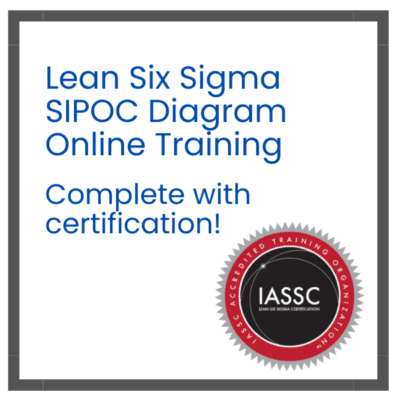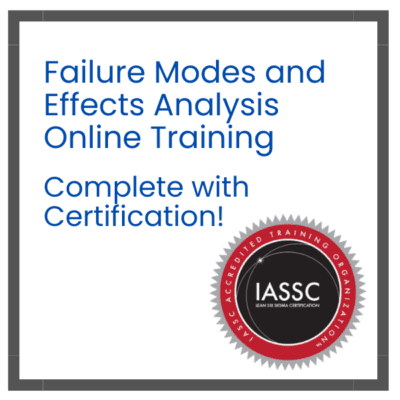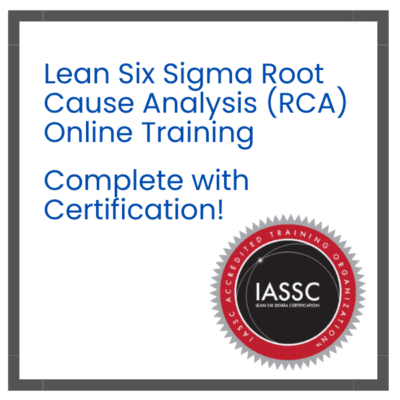Table of Contents:
- What is a Six Sigma Black Belt in Healthcare?
- Six Sigma Certification in Healthcare: Job Opportunities
- Six Sigma Can be Used to Improve the Quality of Healthcare
- The best success profiles are created when they are used to:
- The top 5 reasons people choose Six Sigma Certification in Healthcare
- Related articles
What is a Six Sigma Black Belt in Healthcare?
The Lean Six Sigma Black Belt (SSBB) Training and Certification for Healthcare will make a positive impact on your career. It will give you a solid understanding of the methodology and the leadership role within Six Sigma. Lean Six (6) Sigma Online Black Belt (SSBB) Certification in Healthcare is a way to demonstrate your leadership skills in Six Sigma projects.
Six Sigma is a method that uses statistical tools and concepts in order to identify flaws or variations in a process. An Accredited Six-Sigma Certification in Healthcare signifies that an individual has reached a specific level of knowledge through the study and application of this methodology. This certification will make your career more attractive and valuable in any industry.
Six Sigma SSBB is being used by many healthcare organizations to improve their services and provide better care to the public. A solid foundation in training and certification is essential for the successful organization and incorporation of this management theory.
Many Healthcare processes are great candidates for improving patient care, customer service, and administration. Patients expect the best possible treatment, which means the use of the most recent technology and safe and effective healthcare options. 6 Sigma Black Belt will help you provide better care at lower prices. Long-term improvements are required to address the challenges of an aging population, a shortage of workers, increasing litigation, and other issues. Six Sigma Training and Certification in Healthcare is a great way to tackle these issues at all levels, from the top to those closest to the process.
Six Sigma SSBB in Healthcare courses are just like our other Six Sigma programs, but with customized videos specifically designed for the healthcare industry.

Six Sigma Certification in Healthcare: Job Opportunities
Accredited Six (6) Sigma Black Belt (SSBB9 Certifications are a valuable asset in today’s job market. Six Sigma Certified professionals are highly sought after and highly valued. Certification can lead to job opportunities in all areas of the world, as more companies adopt the Six Sigma methodology for improving performance and reducing defects.
Some of the most respected and well-respected names in healthcare include AmerisourceBergen Corp. and Cardinal Health. Express Scripts, Anthem, and Kaiser Permanente are just a few. We are also trusted by many major hospitals and healthcare networks.
The HTML6 Sigma principles can be used across a variety of industries to increase process efficiency, eliminate waste, and reduce defects. These methodologies can result in happier customers and higher revenue if they are used correctly. Defects in healthcare can not only impact revenue and customer satisfaction, but they can also make a difference in the outcome of a patient’s life.
Healthcare professionals need to use Lean Six Sigma methods because they can reduce the risk of medical errors. The United States has more than 210,000 deaths each year due to medical errors. The healthcare industry is estimated to have lost $17.1 billion annually because of these errors.
Numerous federal agencies have tried to solve this problem at a national level by passing legislation and imposing regulations. However, healthcare professionals–whether practice managers, hospital administrators, or practitioners–can make a difference in their own organizations by employing Lean 6 Sigma Black Belt principles.
Six Sigma Can Be Used to Improve the Quality of Healthcare

- Reduce wait times at hospitals and private practice
- Avoid falls and injuries in hospitals, nursing homes, and other facilities
- Reducing medication errors in prescribing, administering, and filling prescriptions
- Laboratory results can be reissued faster.
Six Sigma can help reduce expenses. Healthcare professionals can achieve these kinds of results by using proven Six Sigma or Lean methodologies. For example, the DMAIC method (Define Measure, Analyze and Improve, Control) focuses on improving processes. The check-in is one of the most important processes in a hospital setting. This is how DMAIC could simplify this process:
Define
- Identify the issues and set goals.
- Create a process map detailing each step.
Measure
- Take a look at the performance of your current check-in and collect data for each step.
- Identify bottlenecks – where is the process slowing?
Analyze
- Analyze each step’s data and look for any elements that could be eliminated or simplified.
- Identify the root cause of bottlenecks.
Get better
- Test and develop solutions to improve check-ins. Can insurance information be obtained prior to patient arrival in non-emergencies? Can nurses and doctors be more coordinated?
Control
- You can ensure that the new check-in procedure is on track by regularly monitoring and documenting any improvements.
- To determine how effective the new process is over time, create a control chart.
The first step in streamlining the check-in process is to make it easier. There are many successful Lean Six Sigma examples in healthcare, from making clinical research more economical to decreasing appointment cancellations. Healthcare professionals who have Lean Six Sigma certifications will be in high demand. Lean Six Sigma training can help employees in the areas of quality management, consulting, and patient experience. They can also be trained to become leaders in healthcare management.
The best success profiles are created when they are used to:
- “Raise performance standards”
- Harmonize individual behavior with hospital strategy and mission, vision, and goals
- Clarify the behavior and performance expectations of employees in a dynamic and changing work environment
- Increase accountability and self-directed development within the workforce
- Management at all levels can be provided with better tools for staffing and assessment, training, development, and career management

The top 5 reasons people choose Six Sigma Certification in Healthcare
Eliminate Errors & Improve Patient Safety
Six Sigma Certification in Healthcare provides the training and tools necessary to reach goals such as minimizing errors in medical care and increasing efficiency in a high-stakes environment. Six Sigma Certification has helped healthcare institutions create a safer environment, while also lowering costs and improving patient care.
Six Sigma Certification will bring patients benefits. The medical staff will make fewer mistakes and have fewer defects. Six Sigma certification can help lower mortality rates, reduce hospital stays, improve patient care, and improve quality. These improvements can not only reduce healthcare costs but also make a difference in the quality of life.
Improve Services & Quality of Care
Six Sigma is being used by many healthcare organizations to improve their services and provide better care to the public. A solid foundation in training and certification is essential for the successful implementation of Six Sigma management theory. Patients who are happy with their healthcare provider are more likely than others to pay their bills. They will also be more satisfied if they complain less.
A healthcare provider must be satisfactory to physicians or they will leave the practice. Although it is difficult to find the right physician, a great facility can make it easier for you to keep a staff of doctors. This will benefit patients. These improvement options can help healthcare groups meet their goals of improving the quality of care. These solutions can improve performance and help healthcare organizations meet their goals.
Quality is a key goal in this industry, which involves saving lives. Six Sigma can be used to improve quality and customer satisfaction in the healthcare industry.
Efficiency increases
Healthcare is the most efficient industry. This is important not only for patients but also for administration and medical staff. Many of these processes still lag behind technology and medicine, despite the advances in medicine and technology.
Six Sigma can be applied to any healthcare process. These projects could include patient handling, medication administration, patient billing, and surgical procedures. Six Sigma has been proven to increase lab turnaround, reduce wait times for appointments, decrease steps in the supply chain, and accelerate reimbursement for insurance claims. These are just a few of the many benefits Six Sigma can bring to an organization’s overall efficiency.
Six Sigma has proven to be extremely successful in the manufacturing, retail, and service industries. Now it is time for the healthcare sector to take part in this process to transform the healthcare industry. Patients are happier, doctors want to work with you, and costs are as low as possible while still maintaining maximum productivity. Six Sigma courses are a great way to help you with critical service issues and automate processes that could even be life-threatening.
Leadership Opportunities
Leadership opportunities will be more common if you can make a positive impact on your organization and are considered an indispensable asset. You will find more opportunities to advance your Six Sigma skills.
Higher Salary
Money is the last and most important. Standing out from the crowd is the best way to increase your earning potential. Six Sigma Certification is the fastest and most affordable way to do this. It is versatile enough to be used in almost any industry. Employers also know that it will likely have a significant impact on their profits. Six Sigma Certified employees are well-received, it’s no surprise.



















